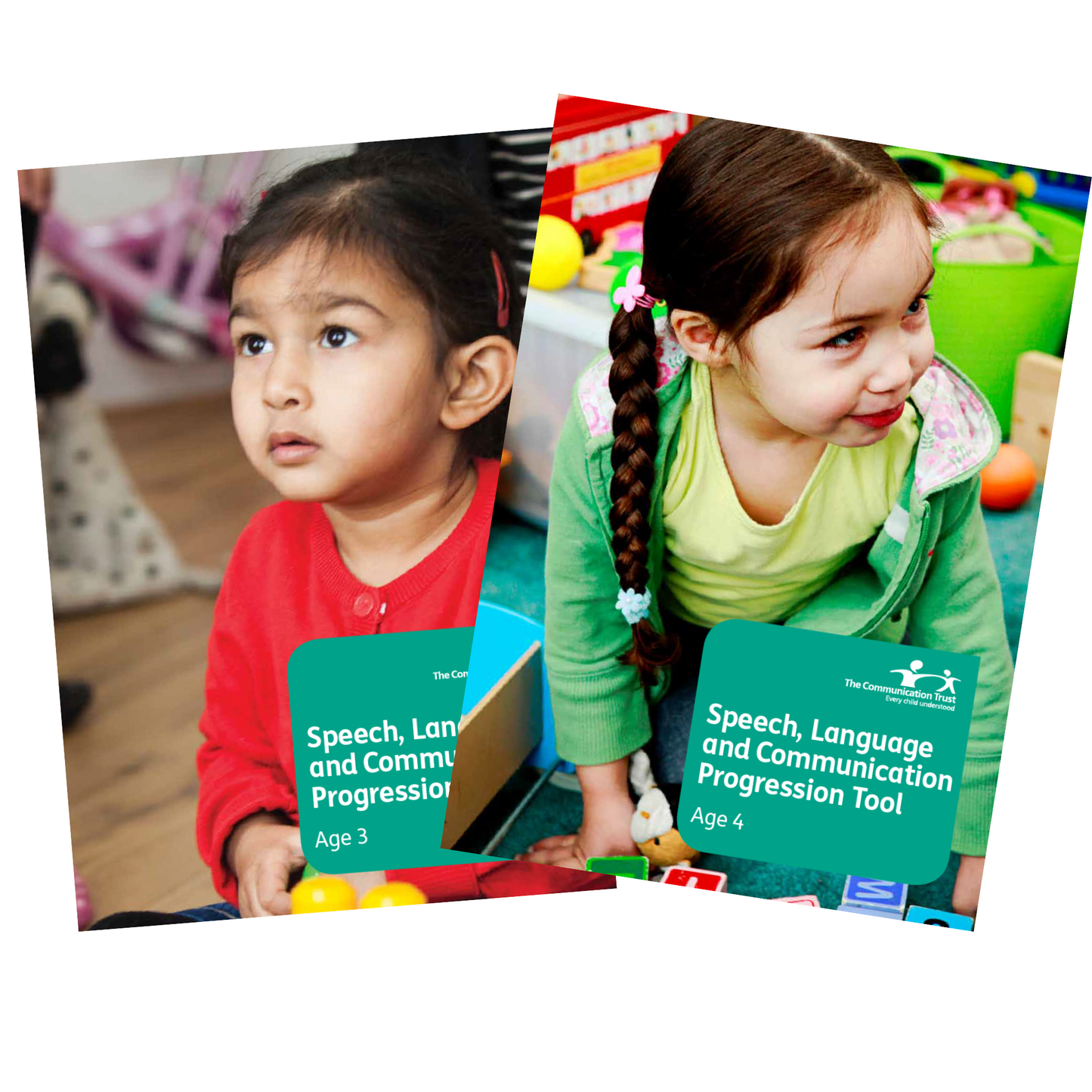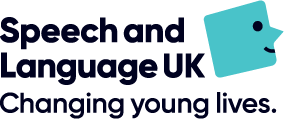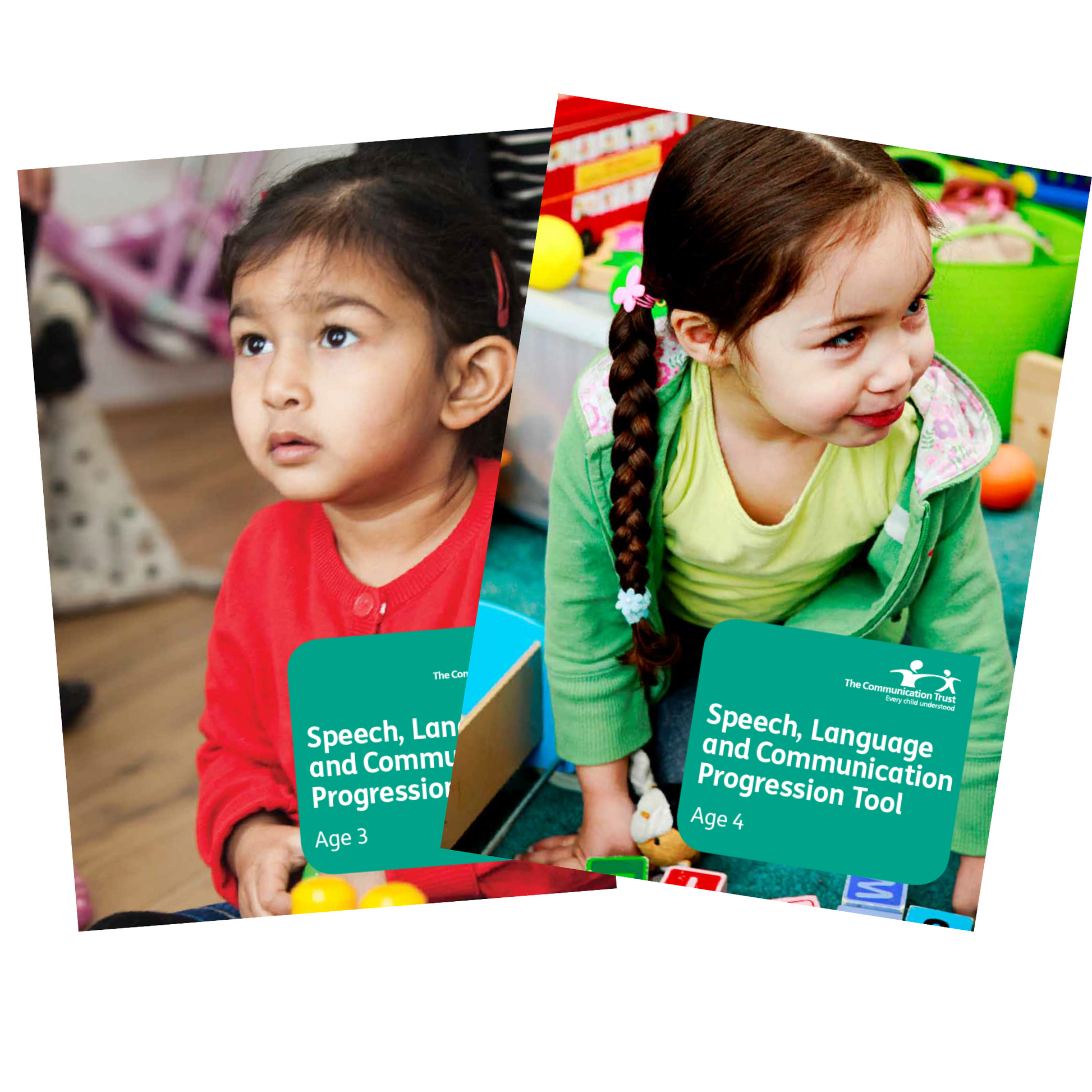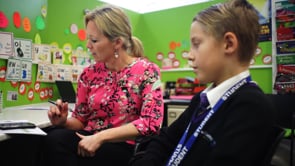Early Years Progression Tools (Ages 3-4)
Early Years Progression Tools (Ages 3-4)
Couldn't load pickup availability
- Age range: 3 - 4 years
- Training required: No
This set of Speech, Language and Communication Progression Tools covers children aged 3 - 4 and supports staff in identifying children who may be experiencing challenges in talking and understanding words.
Contents
Contents
What is included?
There are 2 Progression Tools in this pack, which highlight children and young people's language skills at age 3 and age 4. They are based on research with clear information about expected milestones.
Each Tool contains a colour booklet with instructions on how to use it, questions to ask the children, guidance on how to observe their behaviour, and methods to track the results. It also contains black-and-white versions of the questions and observations sections and the scoring tables for you to photocopy as many times as you wish for the number of children you use the Tool with.
Testimonials
Testimonials
"Again, the year that's just gone, we did our own (assessment) using the Speech and Language assessment (progression) tool and again, we were able to use that to ability group our children, so when we were doing the communication groups, they were pitched at the right levels, and again we've seen an increase this year on the amount of children that were leaving with age-related communication results."Benchill Primary School, Wythenshawe
Resources
Resources
What are the Progression Tools?
We know some children can have speech, language and communication needs (SLCN) that can impact on their ability to listen, understand and express themselves. However, it's not always easy to judge how well a child is progressing with these skills; children may have good skills in one area whilst struggling in others.
The Progression Tools aim to support teaching staff to identify children who may be struggling to develop their speech, language and communication skills. They can also be used to track the progression of these skills over time or following interventions.
The Tools are based on theoretical information on typical language development and also the Universally Speaking booklets. They aim to provide a relatively quick way of determining where children are against where they should be for their age and provide more information about how these vital skills are progressing.
The Tools are not diagnostic tools and do not in any way replace the detailed speech, language and communication assessment by a speech and language therapist that some children will need. However, they will give you information to help decide whether children would benefit from a targeted intervention or whether they need specialist assessment and support.
How were the Tools developed?
The Progression Tools were developed by The Communication Trust's specialists in speech, language and communication in collaboration with mainstream teachers, teaching assistants, SENCOs and school leadership teams. They have been tested on a large number of mainstream schools, on a range of children. The feedback we have received has been invaluable in shaping the final suite of Tools.
Who should use them?
The Tools are for non-speech and language specialists who regularly work with children in a nursery or school setting, such as teachers and teaching assistants. We recommend careful reading of the instructions and familiarisation with the Tool before using it directly with children.
When should I use them?
Some nurseries and schools have used the Progression Tools with whole class groups to help them understand the level of speech, language and communication skills across year groups. Others have trialled them with specific groups of children who have either gone on to have a targeted intervention or have been referred to speech and language therapy.
On each child's scoring form, there is space for you to repeat the tool at a later date (repeating the tool is optional and can be used to monitor progress or following an intervention). We would recommend waiting at least a term before repeating the tool with the same child.



